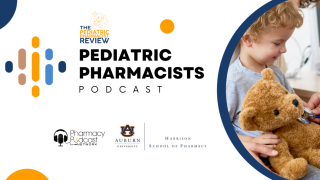Protein-Based COVID-19 Vaccine Candidate Delays Advanced Research

Sanofi and GSK announce a delay in their adjuvanted recombinant protein-based COVID-19 vaccine program to improve immune response in older adults.
This decision was published on December 11, 2020, and was based on the Phase 1/2 study interim results which showed an immune response comparable to patients who recovered from COVID-19 in adults aged 18 to 49 years.
But, a low immune response in older adults, likely due to an insufficient concentration of the antigen, stated the companies.
Paris-based Sanofi’s recombinant technology and London-based GSK’s pandemic adjuvant are established vaccine platforms that have proven successful against influenza. The recombinant technology offers the advantages of stability at temperatures used for routine vaccines, the ability to generate high and sustained immune responses, and the potential to prevent virus transmission.
“We care greatly about public health which is why we are disappointed by the delay announced today, but all our decisions are and will always be driven by science and data. We have identified the path forward and remain confident and committed to bringing a safe and efficacious COVID-19 vaccine. Following these results and the latest encouraging new preclinical data, we will now work to further optimize our candidate to achieve this goal,” said Thomas Triomphe, EPV and Head of Sanofi Pasteur, in a related press statement.
“No single pharma company can make it alone; the world needs more than one vaccine to fight the pandemic.”
Roger Connor, President of GSK Vaccines added: “The results of the study are not as we hoped. Based on previous experience and other collaborations, we are confident that GSK’s pandemic adjuvant system, when coupled with a COVID-19 antigen, can elicit a robust immune response with an acceptable reactogenicity profile.”
“It is also clear that multiple vaccines will be needed to contain the pandemic. Our aim now is to work closely with our partner Sanofi to develop this vaccine, with an improved antigen formulation, for it to make a meaningful contribution to preventing COVID-19.”
The Companies plan a Phase 2b study expected to start in February 2021 with support from the Biomedical Advanced Research and Development Authority, part of the HHS Office of the Assistant Secretary for Preparedness and Response under contract W15QKN-16-9-1002.
The study will include a proposed comparison with an authorized COVID-19 vaccine. If data are positive, a global Phase 3 study could start in Q2 2021. Positive results from this study would lead to regulatory submissions in the second half of 2021, hence delaying the vaccine’s potential availability from mid-2021 to Q4 2021.
Sanofi and GSK adjuvanted recombinant protein-based vaccine candidate was selected in July 2020 by the U.S. government’s Operation Warp Speed in order to accelerate its development and manufacturing.
The Companies have updated Governments and the European Commission where a contractual commitment to purchase the vaccine has been made.
The interim Phase 1/2 results showed a level of neutralizing antibody titers after two doses comparable to sera from patients who recovered from COVID-19, balanced cellular response in adults aged 18 to 49 years, but insufficient neutralizing antibody titers in adults over the age of 50.
The candidate showed transient but higher than expected levels of reactogenicity likely due to the suboptimal antigen formulation, with no serious adverse events related to the vaccine candidate. The most favorable results were observed in the group which tested the highest antigen concentration, combined with the GSK adjuvant, showing neutralization titers in 88% of participants.
Seroconversion was observed in 89.6% of the 18 to 49 age group; 85% in the >50 age group; and 62.5% in the >60 age group.
A total of 441 healthy adults participated in the study, across 10 investigational sites in the United States. The participants received one or two doses of the vaccine candidate or placebo at 21 days apart.
Full results of the Phase 1/2 study will be published as soon as all data are available, following the peer-reviewed publication process.
PrecisionVaccinations publishes research-based vaccine development news.
Our Trust Standards: Medical Advisory Committee
























